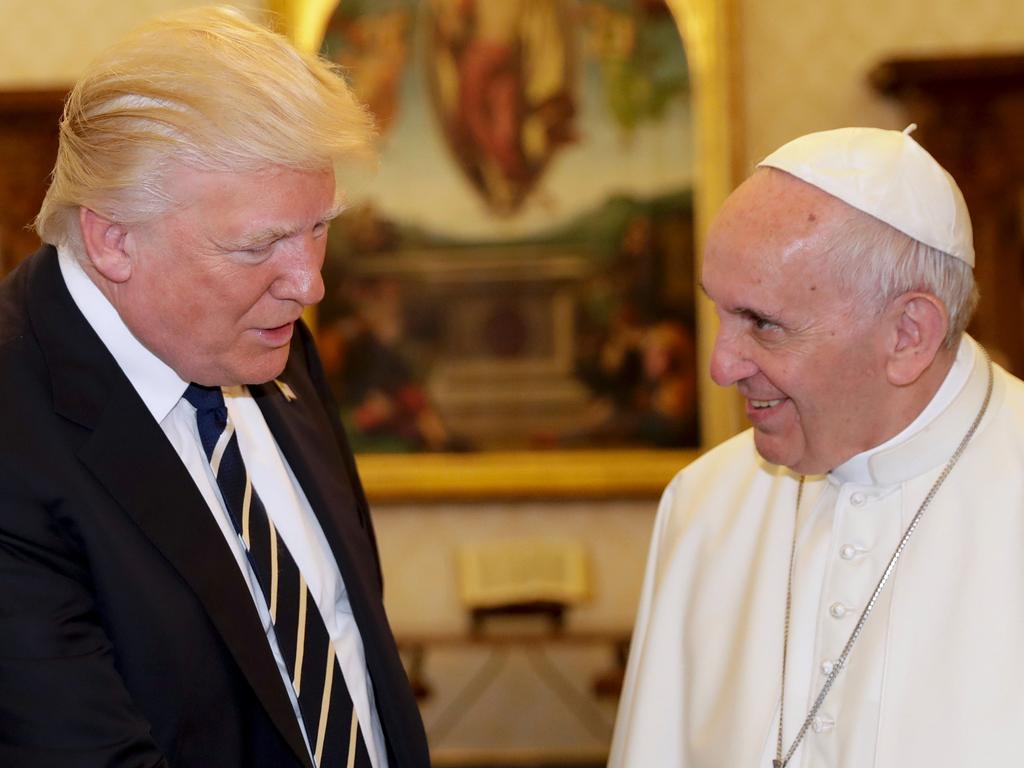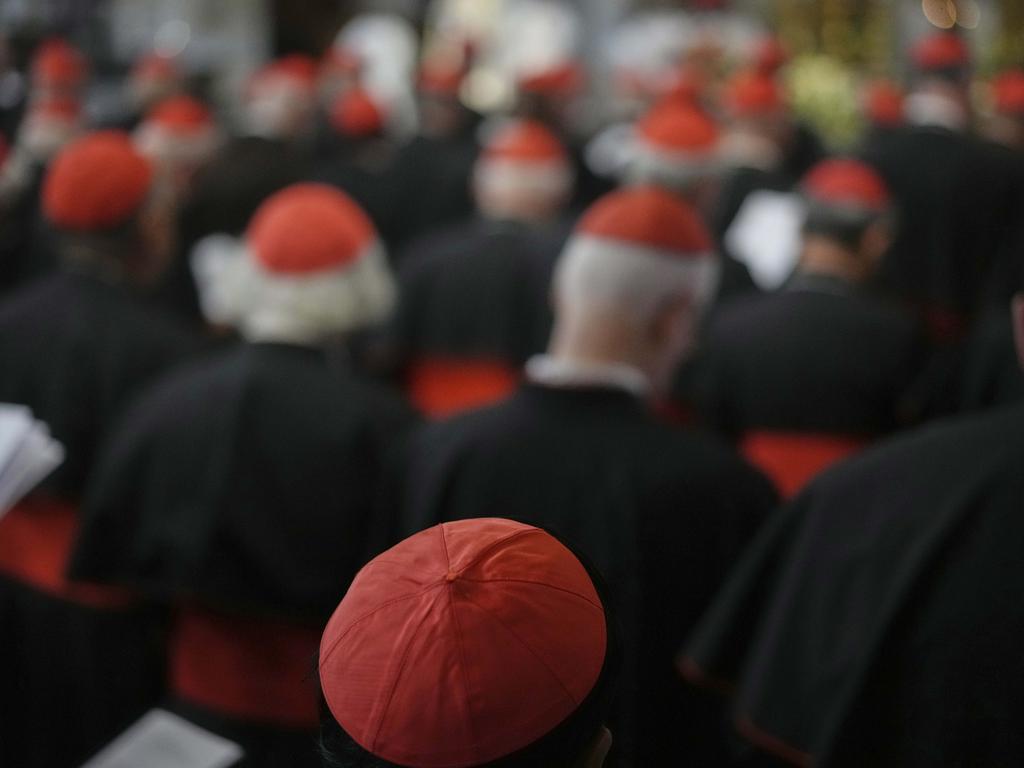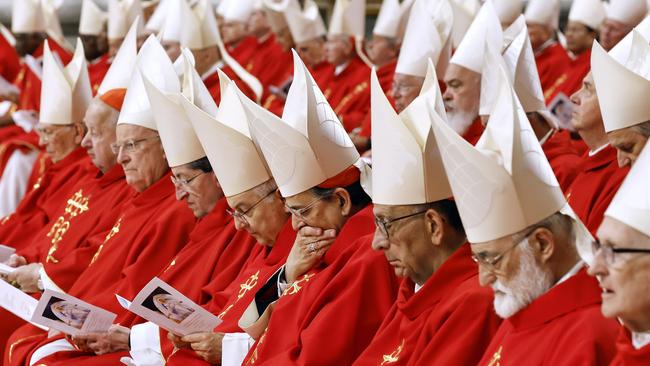
The greatness of Pope Francis is that his evangelism transcended the Catholic Church and became a symbol of humanity – projecting love, duty and sacrifice. He excelled as an optimist in a troubled world but essentially failed as a transformative leader of the Catholic Church.
The global response to his death testifies to a world in mourning for what humanity has lost. Wars rage in Africa, Europe and the Middle East, the bonds of co-operation are shattered within and between nations, and the march of science seems both to enhance yet threaten human nature.
At a time of complexity, Francis offered the virtues of simplicity and faith. He led by example and his personal contact with people often changed their lives. His mission was a church dedicated to the poor, operating in the margins, his reference points being the wooden chair, the hostel room and the cross. Madoc Cairns, editor of Plough Quarterly, said: “Every act he takes is a gesture; images which illume truths; a hand pointing to somewhere past the limits of our sight.”
His death and funeral spectacle reveal the universalism and endurance of the church. Despite the vast crimes of child sexual abuse, the church – its sins revealed to the world – has never been more universal, diverse and remarkable as a surviving institution of two millennia, its mission being to redeem souls and improve the world.
Of the 135 cardinals eligible to participate in the conclave to elect the new pope, the geographical breakdown is: Europe 53, North America 16, Central America four, South America 17, Africa 18, Asia 23 and Oceania four. Jorge Mario Bergoglio reflected that universalism as the first Jesuit, the first Latin American and the first pope from the global south.
Francis came to downgrade doctrinal fixation in favour of evangelical outreach. He conceptualised the church as a “field hospital after a battle” – its task dealing with human beings was to heal wounds. “I dream of a church that is mother and shepherd,” Francis said. He put people before rules.
His papacy began by welcoming refugees on the remote island of Lampedusa; he urged priests to “get out of the sacristies”; he famously said: “If a person is gay and seeks God and has good will, who am I to judge him?” He encouraged different countries to realise their Catholicism within their own cultures, reflecting the challenge of a global church.
Francis raised expectations, but he was rarely able to satisfy them. His social justice pledges led many Catholic progressives to think he would deliver married priests and female priests along with liberal teaching on sexual matters – but Francis never closed the deal. Writing in First Things, RR Reno said he lived out the old Peronist joke to his car driver: “Signal left, turn right.”
Francis championed synodality – clerics and laity working together – yet the process rarely reached resolution. The story of his papacy is the challenge of holding a global church together as the tensions between progressives and conservatives intensified; witness his most celebrated encyclical, Laudato si’, a document with similarities to green Marxism.
Advocating “united global action” on the environment and climate, Francis aspired to reconcile the church’s historical tension between faith and science. “Doomsday predictions can no longer be met with irony or disdain,” he said. “For human beings to degrade the integrity of the Earth by causing changes in its climate” constituted “sins” – so people must engage in “ecological conversion” by changing the way they live.
Signalling scepticism towards Western capitalism, Francis said mankind must recognise the need for a “decrease in the pace of production and consumption” – that meant “the time has come to accept decreased growth in some parts of the world”. He repudiated the notion that global hunger and poverty will be resolved by “market growth” or higher profits, called for a Christian spirituality marked by “the capacity to be happy with little”, attacked the “absolute power” of finance and, reflecting the outlook of St Francis of Assisi, said “less is more”.
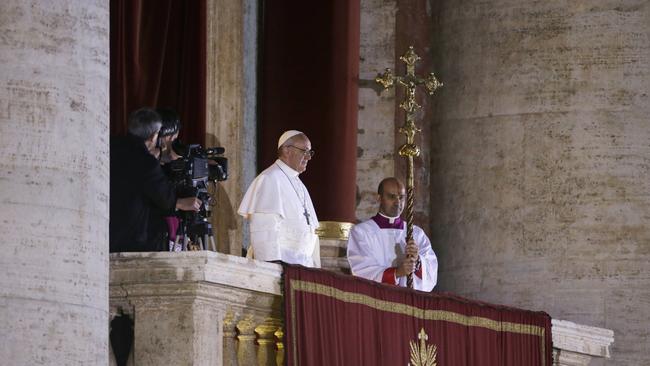
American Bishop Robert Barron, founder of the Word on Fire Catholic Ministries, said: “Pope Francis was a puzzling figure in many ways, seeming to delight in confounding expectations. He famously told the young people gathered for World Youth Day in Rio de Janeiro to ‘hagan lio’ (make a mess), and sometimes he appeared to take pleasure in doing just that.”
Having appointed Cardinal George Pell to reform Vatican finances – suffering from corruption and maladministration – Francis eventually gave up on the task. Pell later told me he worried that Francis could start issues but rarely finish them.
There seemed to be a divide between an Australian-based tradition of financial management and an Italian-oriented Vatican under a Latin American pope. The job is still not done. Pell speculated without knowing about the forces that led Pope Benedict to stand aside.
One of the most alarming Vatican policies is the 2018 formal compact between the Holy See and the Chinese Communist Party government – since renewed – over the appointment of bishops, with the former archbishop of Hong Kong, Cardinal Joseph Zen, warning such accommodation would “kill the church” in China. Zen denounced the agreement as a betrayal that gave “the flock into the mouths of wolves”.
Many underground priests and bishops in China who believed they represented the true church have been detained, isolated or tortured. Beijing engages in religious suppression, church demolitions and censorship, and the party is retranslating the Bible. For the Communist Party, having the church bow before its authoritarianism is a triumph.
Vatican Secretary of State Cardinal Pietro Parolin is an apologist for Beijing who has played down religious persecution in China and is a candidate to replace Francis as pope. In 2021 he said “one cannot but be worried” about Australia’s nuclear submarine AUKUS agreement with the UK and the US, prompting Pell at the time to defend AUKUS and say more collaboration was needed between democracies in Asia to balance the power of China.
Reno offered the remark that “if China becomes a Catholic nation in the next hundred years, Francis will have been vindicated in his tactics”. Surely correct.
The paradox of the Francis papacy is that much of the church’s growth in both the developed and developing worlds derives from the revival of Catholic tradition as opposed to its progressive concessions to Western secularism.
Bishop Barron said: “Francis had to have known that the church is flourishing precisely among its more conservative members. As the famously liberal church of Germany withers on the vine, the conservative, supernaturally (oriented) church of Nigeria is exploding in numbers. And in the West, the lively parts of the church are, without doubt, those that embrace a vibrant orthodoxy rather than accommodate the secularist culture.”
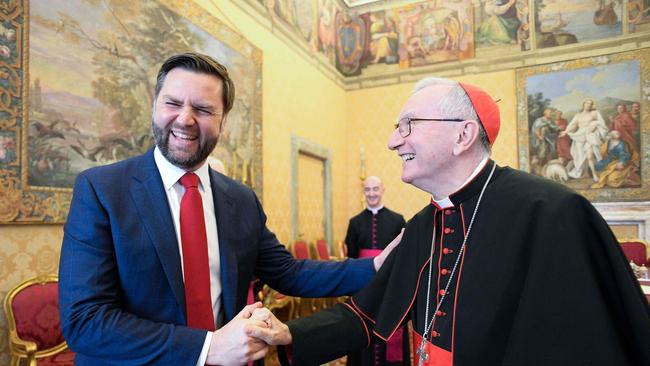
A religious leader who captured the imagination of hundreds of millions, Francis had no popular mandate from the people, no executive power in the political world, and was constrained by the limits of his office, yet his personal example cut through beyond the confines of the Catholic Church.
He was a pope, a leader, and a common man with all the vulnerabilities that involved. He alarmed conservatives and he disappointed progressives – but perhaps such compromise is the only way to keep the church unified today. Fellow Jesuit, Frank Brennan, quoting from the movie Conclave, had the dean of the College of Cardinals saying: “Certainty is the great enemy of unity. Our faith is a living thing precisely because it walks hand in hand with doubt.”
The legacy from Francis will be better grasped in another 100 years. But the response to his passing testifies to the power of tradition, the longing for moral leadership and the pulling power of ancient institutions whose purpose transcends the temporal world. These are the enduring verities that people want and seek – so contrary to the deluded popular culture that debases our times.


